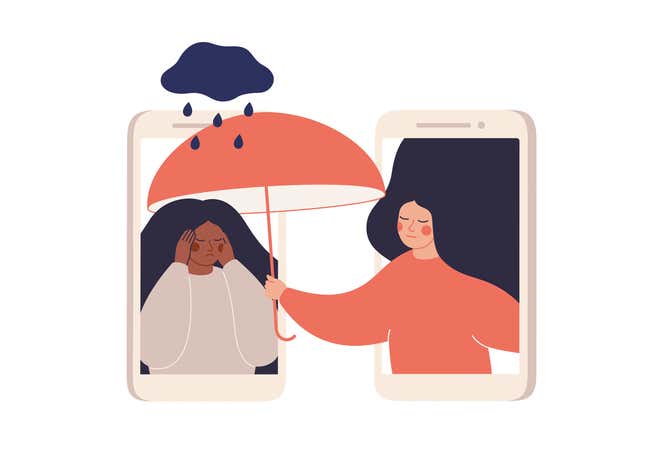
The United States first nation-wide mental health crisis hotline (988) has gone live, as previously reported by The Associated Press. The intent is to replace responding police and paramedics with psychiatric counselors. Given the number of Black people who needed mental help and ended up being arrested, this seems like a solution.
But, some remain skeptical about whether Black people will truly benefit from this new service.
The American Psychiatric Association confirmed what we know: Black people receive poorer quality care and lack access to culturally competent care. Our youth, between the ages of 14 and 18, have been making suicide attempts at higher rates than any other race, according to the 2019 Youth Risk Behavior Survey.
“A lot of people are just now learning that the unfortunate reality for a lot of Black youth is that they are dying. And a lot of that has to do with the fact that mental health conditions are often underdiagnosed or are not adequately treated for the conditions that they have,” said Dr. Christine Crawford, associate medical director for NAMI, via ABC News.
Statistics like these are what make people doubtful in the 988 hotline.
More from AP News:
Improper detentions and other issues contribute to what some experts say is an underutilization of mental health services within communities of color. Only one in three African-Americans who need mental health care receives it, according to the American Psychiatric Association.
“It’s not because people don’t want to use mental health services,” said Sirry Alang, a professor of sociology and health at Lehigh University. “It is because they’re using mental health services in the context of incarceration and police brutality.”
As jails outnumber hospitals that offer psychiatric drop-off sites, they have become the largest mental health institutions in some states.
Congress designated 988 as the universal number for the mental health crisis hotline system in 2020 after nationwide protests against cases of police brutality. Organizations such as Mental Health America endorsed 988 as a tool to limit “the number of people who are needlessly involved in the criminal justice system because of a mental health crisis.”
On one hand, the service must be adopted with the effort to build trust with the Black community by service providers understanding the community they serve. On the other hand…Black people need to be willing to seek these services.
“There was this idea that you don’t need treatment, that you just needed to get yourself together, or you needed to pray more,” said Joyce Coleman from HealthPartners, via AP News. “If you want something to spread, church is where it starts. The fact that I’m connected with a health care organization makes it even better.” Coleman said ministry has offered her a way to connect the Black community to healthcare.
Black people have been manipulated by the healthcare system for too long to trust a new service outright. However, having an alternative to calling 911 for a mental crisis certainly seems better than an officer who isn’t trained to calm mentally ill individuals.
Also, we’ve seen enough as a community in the past two years to consider talking to someone about it.



